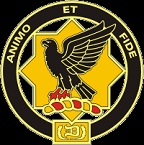Shannon V. OKeets
Posts: 22095
Joined: 5/19/2005
From: Honolulu, Hawaii
Status: offline

|
quote:
ORIGINAL: Captain Cruft
You're right, the save and replay thing is a problem. Games solve it in different ways. PzC has an option where it does not allow you to save at all in PBEM mode. SPWaW has a feature which shows you how many times the opposing player has loaded and saved the file, so if there is a discrepancy you can see it.
Having never played the Decisive Battles series via PBEM (except for TAO2 which doesn't really count) I'm not sure what happens there. What I do know is that there is a very thriving PBEM community at ssg.com.au, so it must do something ;)
It's worth noting that WEGO has basically the same problem of re-running turns, except that only one player (the "master", e.g. Japan in WitP) can do it ...
--
This whole problem is one reason I think that wargames should move to a client-server architecture, but I digress ... ;)
For MWIF (Matrix Games' World in Flames) I intend to use a small utility program that can be run on any server system. The PBEM players, when they start a game, register their game with this utility program (which is running on a computer none of the players controls). I am calling the utility program eMWIF. eMWIF knows who is playing each registered game and where they are in the sequence of play for a turn (and which turn, of course). Whenever the sequence of play requires a random number, the player's version of MWIF, which resides on his own computer, places a request to eMWIF for a random number(s). This request goes out over the internet automatically and requires no special handling by the player. To the player, there might be a small delay, 10 to 20 seconds? eMWIF logs the event and returns the random number(s). What this all means is that rerolls are not possible. Saving the game and restoring it does not help for eMWIF has not only recorded the move, it has forwarded it, via email, to the opponent as well. There are more odds and ends to this design, mostly because of the highly interactive design of WIF - the player not on move has a ton of little decisions to make.
In a nutshell, by setting up a small software program on a third party system, cheating can be prevented in PBEM games. I considered a pure client-server design, but most of you can probably list all the reasons against that better than I can. And I found quite a few reasons against it. The third party machine can be just about anyone who is willing to let eMWIF run. The files are very tiny since eMWIF does not store the whole game (not the executible, not the data, not the graphics, not the sound, nor video, ...). I beat on this design pretty thoroughly back in August and will do so again when it comes time to code it. At this point I think it is solid in preventing cheating. By the way, the standard I am trying to achieve here is for the system to be rigorous enough that it enables PBEM tournaments of MWIF someday.
_____________________________
Steve
Perfection is an elusive goal.
|
 Printable Version
Printable Version






 But would really like the WEGO system.
But would really like the WEGO system. 












 )
)  New Messages
New Messages No New Messages
No New Messages Hot Topic w/ New Messages
Hot Topic w/ New Messages Hot Topic w/o New Messages
Hot Topic w/o New Messages Locked w/ New Messages
Locked w/ New Messages Locked w/o New Messages
Locked w/o New Messages Post New Thread
Post New Thread